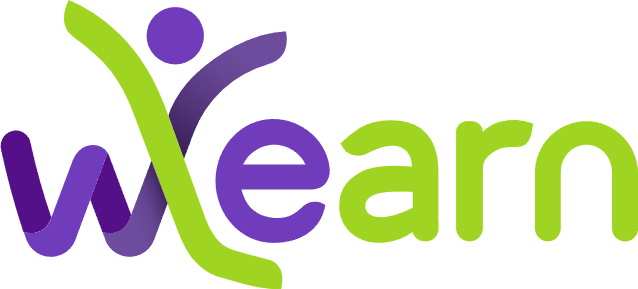Acellus English I
Class
Course Overview
Course Objectives & Student Learning Outcomes
High School English I is targeted to building a foundation in the core areas of reading fluency/comprehension and effective oral and written communication. Specifically, the course aids students to achieve the following:
- Read increasingly complex texts, both fiction and non-fiction, with comprehension and fluency, demonstrating an understanding of different treatments of similar themes
- Conduct long and short-term research projects utilizing multiple types of resources, assessing their reliability and relevancy to the research topic
- Produce a variety of oral and written presentations based on analysis and comparison of texts, on research conducted, and on conclusions drawn through study and discussion; these include both formal as well as informal written and oral presentations.
- Utilize multimedia components in written and oral presentations where these aid in making clear points
- Participate in meaningful group discussions, considering other’s points of view, and exchanging knowledge and ideas
- Adhere to the conventions of Standard English in writing and speaking
- Gain an appreciation for and a greater understanding of great literature
The Acellus High School English I course provides a detailed investigation of literary techniques and devices using classics from American and English literature as examples. It explains how to recognize these techniques and to incorporate them into writing. It also presents strategies for expanding vocabulary through reading and provides focus on grammar skills for advanced writing. Course topics include:
- Plot, Setting, Conflict, and Irony
- Characterization and Theme
- Point of View, Narrator and Voice
- Cause and Effect
- Autobiography, Memoirs, and Biography
- Persuasive, Expository, and Descriptive Essays
- Speech in Writing
- Editorials
- Elements of Poetry and Poetic Devices
- Drama
Acellus English I is A-G Approved through the University of California.
Scope and Sequence
Unit 1 – Plot, SettingThis unit covers plot and conflict, and includes genres, vocabulary, story elements, conflict, summarizing, literary devices, and semicolons.Unit 2 – ConflictThis unit covers conflict and also discusses how to evaluate and analyze irony, using verbs for description, using adverb clauses, etymology, vocabulary, and colons.Unit 3 – IronyThis unit covers irony, and includes homonyms and homophones, flashback, characterization, dashes, using dialect in dialogue, paraphrasing, imagery, synonyms, and humor through irony.Unit 4 – Short Story - Point of ViewThis unit discusses point of view, and includes vocabulary, setting, irony, characterization, imagery, simile, theme, transitional phrases, run-on-sentences, and misplaced modifiers.Unit 5 – Short Story - Narrator and VoiceThis unit covers narrator and voice, and also discusses using character foils, vocabulary, identifying sequence, comparing, contrasting, finding irony, how to use theme, comparative and superlative adjectives, and analogies.Unit 6 – Short Story - Cause and EffectThis unit discusses cause and effect relationships, vocabulary and academic vocabulary, inferences, tips for using a dictionary, parts of words, words with multiple meanings, analogies, and how to use concrete details in writing.Unit 7 – Literary AnalysisThis unit discusses literary analysis, including choosing a topic, writing an introduction, weaving in text, formatting body paragraphs, explaining evidence, constructing paragraphs with the alternating or chunked method, writing conclusions, and including citations.Unit 8 – NonfictionThis unit discusses the genre of nonfiction, including strategies for reading nonfiction and how vocabulary and angle are used in nonfiction, as well as how to use summarization, semicolons, synonyms, facts, opinion, and rhetorical devices.Unit 9 – Nonfiction – Autobiography, MemoirsThis unit discusses sentence fragments, analogies, historical narrative, how to write a news story, parts of words, analogies, using commas in series, and academic vocabulary.Unit 10 – Nonfiction – AutobiographyThis unit discusses how to improve reading comprehension, how to decode vocabulary, and how to write autobiographical narratives, as well as jargon, characterization, imagery, adopted words, dialogue, speaker tags, and word usage.Unit 11 – Nonfiction – BiographyThis unit covers the genre of biography, as well as tone, author's purpose, anecdotes, character inferences, writing skills, preparing for and conducting an interview, transitioning from interview to report, decoding vocabulary through word parts, cause and effect relationships, and dangling modifiers.Unit 12 – Nonfiction – Persuasive, Expository EssaysThis unit introduces the essay, including persuasive, expository, and humorous essays. It discusses antithesis, analyzing argument, word usage and vocabulary, pronoun-antecedent agreement, paraphrasing, analyzing humor, rhetorical devices, and using context clues.Unit 13 – Persuasive EssayThis unit discusses writing a persuasive essay, including choosing topics, writing the thesis statement and introduction, how to construct an argument sandwich and a data dump, how to address the counter, how to write a conclusion, how to do research, and how to use and include citations.Unit 14 – Nonfiction – SpeechThis unit discusses persuasion, argument, bias, rhetorical devices, common ground, word usage, infinitives, synonyms, comparing literature, differing views, sentence fragments, analogies, and editorials.Unit 15 – Nonfiction – Elements of PoetryThis unit discusses the elements of poetry, including paraphrasing, rhyme scheme, metaphor, poetic form, free verse, comparison and contrast, symbolism, and personification.Unit 16 – DramaThis unit discusses the elements of drama, tragedy and its elements, comedy, and satire, as well as tips for reading and writing drama, dramatic devices, Shakespearean drama, and strategies for reading Shakespeare. Also covered are using possessives and subject-verb order.
Here is the class outline:
1. WEEKLY PROGRESS TRACKER |




